Ten to tuck away: solid stocks that will stand the test of time
A portfolio of shares should be based on some large, well-managed companies with proven business models and compelling long-term prospects. These ten stocks fit the bill.
Get the latest financial news, insights and expert analysis from our award-winning MoneyWeek team, to help you understand what really matters when it comes to your finances.
You are now subscribed
Your newsletter sign-up was successful
Want to add more newsletters?

Twice daily
MoneyWeek
Get the latest financial news, insights and expert analysis from our award-winning MoneyWeek team, to help you understand what really matters when it comes to your finances.

Four times a week
Look After My Bills
Sign up to our free money-saving newsletter, filled with the latest news and expert advice to help you find the best tips and deals for managing your bills. Start saving today!
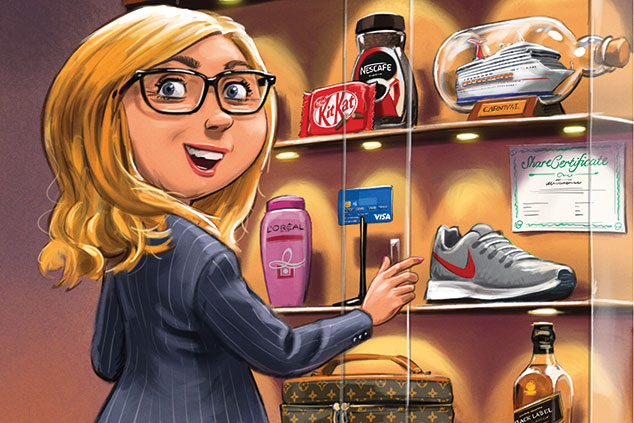
A portfolio of shares should be based on some large, well-managed companies with proven business models and compelling long-term prospects. These ten stocks fit the bill, says Stephen Connolly.
Short-term trading can generate high returns. But it can also be very risky, so it doesn't make sense to allocate more than a small portion of your equity portfolio to it. What, though, is the best strategy for the rest of the equity allocation if you're interested in owning shares directly?
A portfolio needs a foundation of solid and dependable assets that can hold their own. These are companies that can be bought and tucked away for the long term, or even for life; they shouldn't need reviewing on a daily basis. They can easily sit alongside other core investments, such as investment trusts.
MoneyWeek
Subscribe to MoneyWeek today and get your first six magazine issues absolutely FREE

Sign up to Money Morning
Don't miss the latest investment and personal finances news, market analysis, plus money-saving tips with our free twice-daily newsletter
Don't miss the latest investment and personal finances news, market analysis, plus money-saving tips with our free twice-daily newsletter
Below, I highlight ten such stocks. There's no particularly scientific selection process. The list that follows is just an attempt to identify companies with proven business models and management for market-beating returns over the long term. They can enhance, de-risk, or even start a sensible portfolio of individual stocks. They are what could be labelled "quality", and tend to be dominant within their sectors. I have drawn on several different regions and attempted to diversify by industry. Stocks given high values by the market, but without a demonstrably profitable business, have been ignored so you won't find Tesla or Uber here, for example. Following tips and one-off recommendations can lead to great gains, but at the same time portfolios can become unbalanced; sometimes too much has been invested in small caps or a particular sector, for example.
It can even be that the companies, while they appear promising, are simply too risky should the economy deteriorate. The stocks below are certainly not immune to economic volatility, but their businesses are generally built on multiple revenue streams, tempering their exposure to the business cycle. They are stocks for all seasons.
Adobe
Software (US)
Adobe's (Nasdaq: ADBE) brands have created not one, but two, new English words. People talk of "PDF-ing a document", and wonder if a picture has been "Photoshopped". This sort of "brand embedding" suggests a product will endure. Adobe launched in 1982, with origins in printing software, desktop publishing, typesetting and fonts. Photoshop arrived in 1989 and the PDF in 1993. Photoshop is to images what Microsoft Word is to text editing. The firm now offers a broad suite of software around document management, image and video-editing, and design. The software is widely used in offices and has a strong customer base in the creative industries, from studio teams through to freelancers. The group moved into cloud computing (whereby data is stored and managed online rather than on a user's PC) with Creative Cloud a few years ago. This offers project access across multiple locations and devices.
What makes Adobe a standout business is its early adoption of the increasingly ubiquitous subscription-based revenue model. Users no longer buy software on a disc, they rent it online. More than 90% of its revenues are now recurring. Creative Cloud and the associated Document Cloud are increasing usage at a rate of more than 20%. Adobe's track record and the potential for deals to add more client offerings mean the stock deserves its premium valuation.
Carnival Corporation
Leisure and Travel (UK)
There are two big things to get right in the cruise industry. First, whether through discounting or free extras, get those ships 100% full. Then, make sure there's plenty to sell that captive audience, from alcohol to day trips. The industry has got this down to a fine art, with passengers and profits on an upward path.
But there's still much further to go: last year's 28 million passenger total is only a small part of the multi-trillion-dollar travel market. For example, while some 50% of cruisers are American, only 3% of the country's population have been on one. European market share is also relatively low, and the Far East offers great demand.
Demographics are changing favourably. Older, post-retirement travellers are important. But there's also a marked upswing in millennials seeking "experiences" with an appetite for travel. Carnival Corporation (LSE: CCL) is the world's biggest cruise operator, with ten brands including Carnival, Princess, Cunard and P&O. Its 100-plus ships give it about half the global industry's total passenger capacity. A large proportion of these sail the Caribbean out of the US. Carnival will be adding more than a dozen new ships over the next four years. The shares are cheap and the outlook upbeat.
Diageo
Beverages (UK)
With headquarters in London, Diageo (LSE: DGE) is a leading global drinks business with brands including Smirnoff, Johnnie Walker and Guinness. Branded beers and spirits are likely to be consumed for many years to come. Diageo's last reported figures beat market expectations with a broadly based performance. Recent industry trends have shown a shift in consumption towards craft and premium products and Diageo has been positioning itself accordingly.
The company has been a strong performer, and is well regarded by investors. Sales are expected to grow somewhere between 5% and 6% a year over the next few years, although the group has been known to be cautious in its guidance and could therefore surprise on the upside. The key with Diageo is its healthy balance sheet and the fact that it has big margins and generates strong cash flows that can be used to invest for growth, or be returned to shareholders.
Diageo is a long-term investment that ticks the boxes as a dependable foundation stone in any portfolio. It's not cheap compared with peers, but attracts a premium rating given its record, dependability, and brand quality. The strength of the brands with their loyal consumer base mean it has a degree of pricing power and should be able to keep revenues ahead of inflation at a minimum. With higher sales it should also be able to eke out higher margins in future, implying further cash being returned to investors either through share buybacks or dividends. It hasn't failed to increase the latter every year for the best part of 20 years.
Johnson & Johnson
Healthcare and Medical Devices (US)
Johnson & Johnson (NYSE: JNJ) is a leading US pharmaceutical and medical-devices business operating worldwide. The 133-year-old firm boasts a strong long-term compound-growth rate. On the pharmaceutical side it is active in tumour treatments and immunology. It's also working against infectious diseases. The devices division makes disposable contact lenses, disinfection products, and orthopaedic equipment. Johnson & Johnson is a business built on several diverse, yet reliable long-term revenue streams.
The company is no stranger to litigation, like many of its pharmaceutical competitors; lawsuits have become part and parcel of investing in the sector. For example, it was recently involved in legal action concerning opioids.
Looking forward, healthcare generally remains a huge market and the demographic trends of an ageing population in developed markets, in conjunction with an emerging middle class in developing countries, are positive for pharmaceutical and medical-device businesses. Where Johnson & Johnson adds value is in its record od innovation, which it is able to back up with strong cash flow from other activities.
In turn, it has been able to produce blockbuster treatments with significant margins that can support further investment and boost returns to shareholders. As American stocks go, it has a decent forward yield of 2.7%, as well as a solid balance sheet. The shares are trading at around 15 times next year's earnings, which constitutes a reasonable entry point for long-term investors.
LVMH
Luxury Goods (France)
Bernard Arnault, a doyen of Parisian business and one of the world's wealthiest men, took charge of LVMH (Paris: MC) towards the end of the 1980s. The conglomerate was originally made up of the Louis Vuitton trunk and travel-goods maker, along with Mot & Chandon champagne and Hennessy cognac. With the purchase of various businesses since, including Givenchy, Guerlain, Bulgari and Christian Dior, it's now a €180bn behemoth the world's top luxury goods group by revenue.
Sales have climbed 50% over five years with earnings doubling, and 2018 was another record-breaker for revenue. LVMH has been achieving solid sales growth in both developed and emerging markets and seems unaffected by the trade war; growth in China has been accelerating and demand for luxury goods is holding up, while consumers' appetite for products such as iPhones is slipping. Arnault's focus has been mainly on highly regarded European luxury labels and using the group's financial resources to build them internationally. While LVMH isn't immune to economic slowdowns, the global appeal of its top-notch labels gives it something of a defensive quality. It is well managed and should keep delivering market-beating returns for years.
Nestl
Consumer food and drink (Switzerland)
There's not much Nestl (Zurich: NESN), the world's biggest food company, doesn't do from breakfast cereal, tea and coffee, to pet food, frozen meals and ice cream. Sales top CHF 91bn a year. Its brands will feature in most people's weekly shop somewhere, and they include Nesquik, Cheerios, Nescaf, Nespresso, San Pellegrino, Smarties, Quality Street and Hagen-Dazs. The group has cut its exposure to beauty products, bringing in cash to invest in core food and drink products. More broadly, the group continues with its three-year turnaround strategy, which has boosted sales, and it's putting cash to work on foods with a healthier-living slant. The group's recent results have been better than forecast and shareholders are responding positively. The figures have tempered concerns that companies such as Nestl are vulnerable to fast-moving start-ups as consumers become more quality-conscious. Nestl will continue to thrive if it can maintain pricing and margin momentum.
Nike
Sports shoes and apparel (US)
Nike (NYSE: NKE) was founded as Blue Ribbon Sports in 1964 and has grown to become a global marketing juggernaut, with a brand synonymous with many of the top inspirational names in sport. Its ability to use these associations to create deep loyalty from its customers is widely admired, as is the design innovation that has kept it at the leading edge of its industry for 50 years. Investors and analysts still sometimes underestimate Nike, however. Worries over slowing US sales, too much out-of-date stock, or the threat of Amazon all make the rounds. Yet the shares have climbed 19% a year over the past decade, while profits have doubled to $4.5bn.
Nike's customer base is remarkably cross-generational, with the "Swoosh" emblem visible everywhere from golf courses to high-school basketball tournaments. There's little to suggest that loyalty to Nike is fickle, and it's hard to picture the company as an "also-ran" in ten years' time. Spurs to growth include a revamped digital push with a new and popular purchasing app, plus greater use of social media. Nike is working on slashing the time it takes to bring products to market to respond faster to fashion trends and manage pricing and stock better. Significant investment in breakthrough materials developed around automated robot manufacturing could boost production and margins greatly.
L'Oral
Beauty and cosmetics (France)
A seller of hair dye to Parisian hairdressers before World War I, L'Oral (Paris: OR) has grown to become a global beauty and cosmetics powerhouse worth more than €120bn. The company owns and manages brands including premium labels Lancme, Giorgio Armani and Yves Saint Laurent. The Bettencourt family descendants of the founder still owns a third of the company, while Nestl has 23%. Profits have easily more than doubled over the past decade and the shares have gained in excess of 11% annually, outpacing the broader market. The most recent figures in April were ahead of expectations, thanks to strong sales around its deluxe offerings.
Taking a longer-term view, a focus on big cosmetic companies provides a good geographic spread as well as the protective diversity of a large portfolio of brands. The beauty industry is gaining from increased demand in the Far East, together with greater use of make-up among "selfie"-conscious millennials inspired by online campaigns by "influencers". The greatest growth is likely to come from premium, world-class labels that should be dependable over the long term and relatively resilient to economic downturns. Non-premium products will give support too, regardless of the wider economy, as people are extremely unlikely to stop washing their hair or moisturising.
Roche
Pharmaceuticals (Switzerland)
Swiss pharmaceutical giant Roche (Zurich: ROG) is a favourite among fund managers, who point to its long record of dividend increases and cash-flow generation. Most of its revenue has come from oncology medication (dealing with cancer and tumours), although with a lot of it losing patent protection this won't be much of a growth area in future. Where there will be gains is in ophthalmology (eyes), neurosciences (nervous system around multiple sclerosis and Alzheimer's disease) and in-vitro diagnostics (sample testing and analysis), where emerging-market growth has been rapid. The neuroscience arm could see some big breakthroughs and new blockbuster drugs.
Overall sales last year were CHF57bn, a rise of 7%, almost matching the increase in research and development spending. The group is considered to have one of the strongest new development pipelines, and it has achieved numerous regulatory approvals for new treatments. With its record and potential new game-changing therapies, Roche stands out as a quality operator where the multi-year nature of research and patent time periods aligns well with the investment horizons of a long-term investor.
Visa
Payment processing (US)
Visa (NYSE: V) is one of the world's biggest card-payment companies, processing hundreds of millions of transactions a day. Each time money changes hands between consumers and businesses on its network, it takes a fee. Although often mistaken for a finance or credit business, it is in fact a long-established and highly profitable tech play. It doesn't issue cards or lend any money itself. Its clients, mainly banks, do all that with their customers. Visa gains from spending activity, all without the hassle of dealing with cardholders, or the worry that they won't be able to pay.
As brands go, few are more central to everyday life. There are around 3.3 billion Visa-badged cards worldwide almost one for every two people. Nearly 50 million businesses accept them from local cafes to five-star international hotels. Profits quickly mount up. Last year it made $12.8bn on operating margins that have been at an eye-catching 60% or higher for years. Earnings are expected to keep growing in the 15%-20% range. Its global network has been decades in the making and can't easily be copied a significant barrier to new entrants. Its only real competition is the smaller Mastercard. Digital disrupters such as Apple Pay or PayPal haven't come anywhere near it. Visa will gain long term from the driving forces of e-commerce and the shift to increasingly cash-free societies.
Get the latest financial news, insights and expert analysis from our award-winning MoneyWeek team, to help you understand what really matters when it comes to your finances.
Stephen Connolly is the managing director of consultancy Plain Money. He has worked in investment banking and asset management for over 30 years and writes on business and finance topics.
-
 Should you buy an active ETF?
Should you buy an active ETF?ETFs are often mischaracterised as passive products, but they can be a convenient way to add active management to your portfolio
-
 Power up your pension before 5 April – easy ways to save before the tax year end
Power up your pension before 5 April – easy ways to save before the tax year endWith the end of the tax year looming, pension savers currently have a window to review and maximise what’s going into their retirement funds – we look at how
-
 Is the AI boom a bubble – and will it burst?
Is the AI boom a bubble – and will it burst?Massive spending on AI infrastructure is starting to spook investors, but experts say the bubble doesn’t look like bursting yet
-
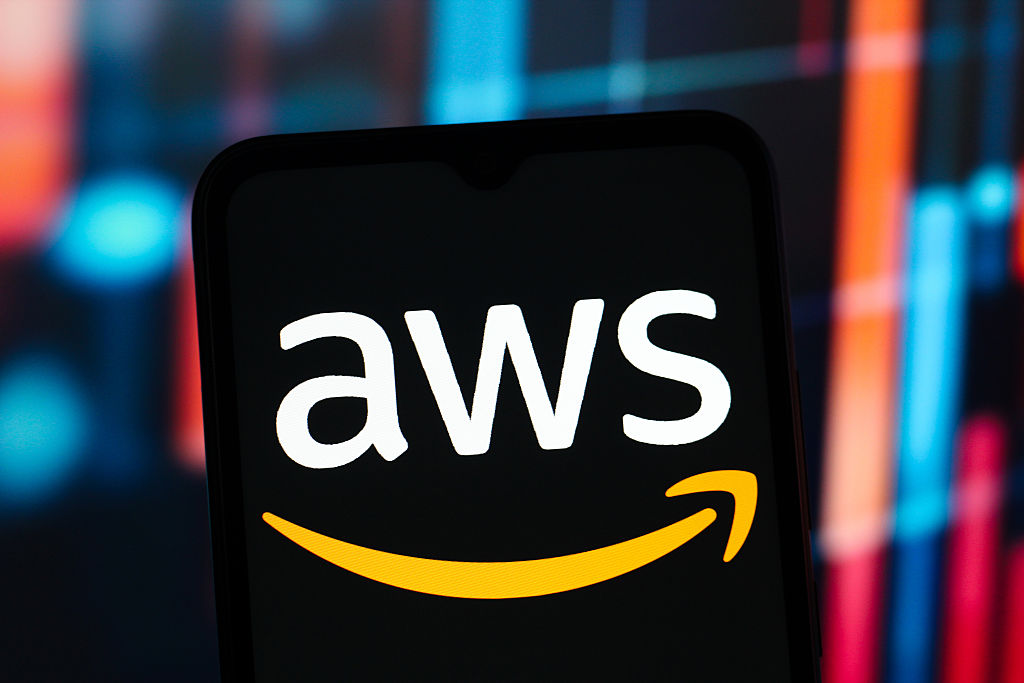 Amazon stock falls as AWS results underwhelm
Amazon stock falls as AWS results underwhelmApple stock rose after earnings on a return to growth in China; Amazon's share price fell despite an earnings beat
-
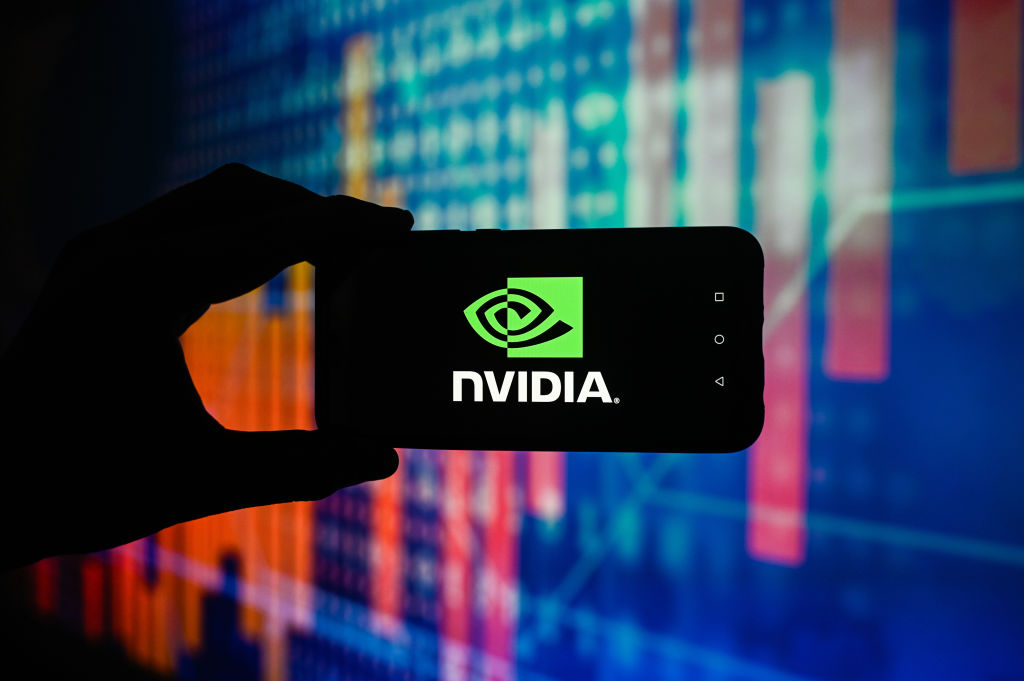 Nvidia dethrones Microsoft to become world’s most valuable company - should you invest?
Nvidia dethrones Microsoft to become world’s most valuable company - should you invest?The chipmaker’s share price continues to soar, leaving all in its wake. What is behind Nvidia’s rise?
-
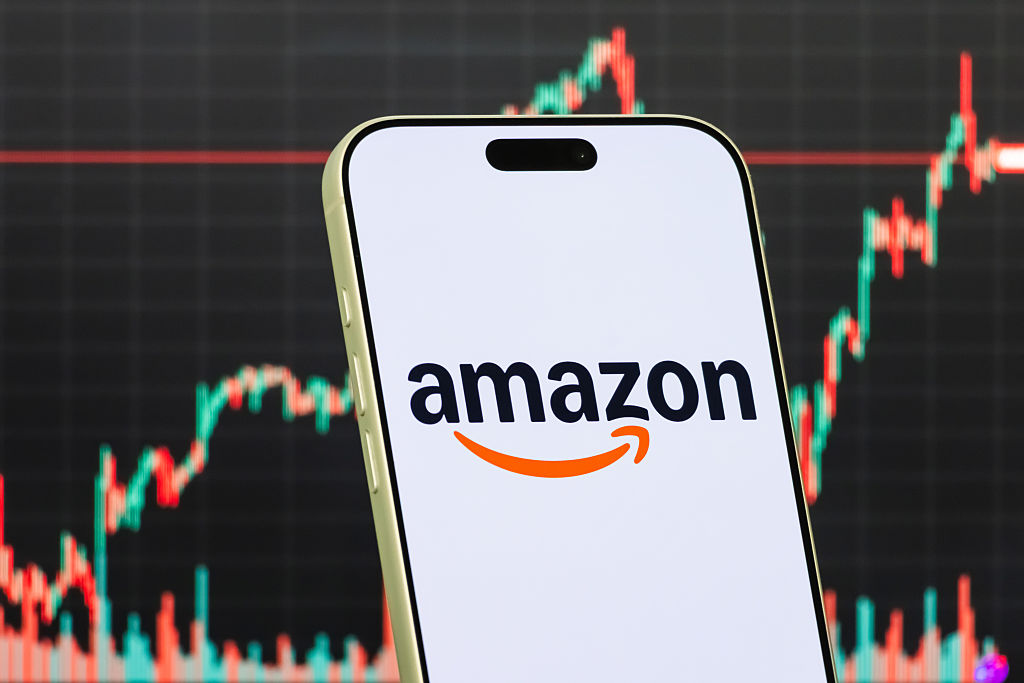 Amazon shares fall on profitability concerns
Amazon shares fall on profitability concernsA big increase in capital spending plans compounded an earnings miss for Amazon following its Q4 results
-
 3 ways to play the artificial intelligence boom
3 ways to play the artificial intelligence boomArtificial intelligence will play a huge role in many sectors. Look for a wider range of ways to profit.
-
 What is Steve Ballmer's net worth?
What is Steve Ballmer's net worth?Steve Ballmer was Microsoft’s CEO from 2000 to 2014, and his huge net worth comes from his position at the top of the tech company
-
 Tap into the key long-term growth trends with these resilient performers
Tap into the key long-term growth trends with these resilient performersA professional investor tells us where he’d put his money. This week: Zehrid Osmani, portfolio manager, Martin Currie Global Portfolio Trust, picks three favourites.
-
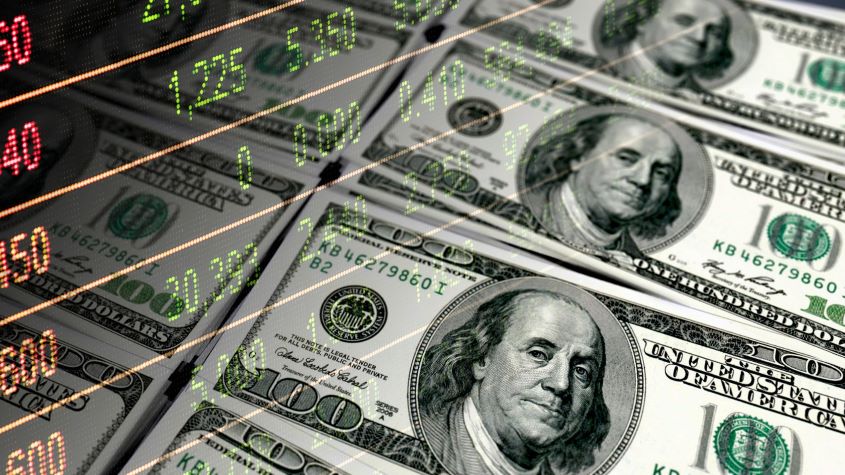 As the US earning season kicks off, we look at how you can save on US trading fees
As the US earning season kicks off, we look at how you can save on US trading feesTips One investment platform is marking the US earnings season with a three-day trading offer on US shares. Here we explain how it works